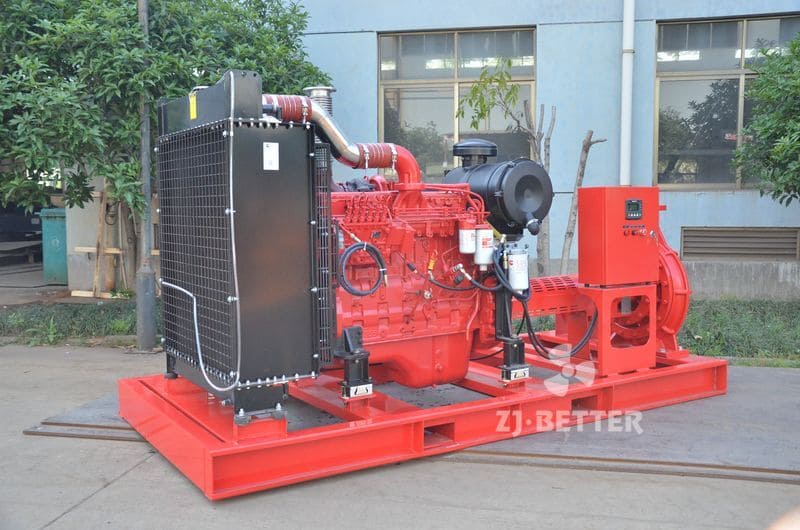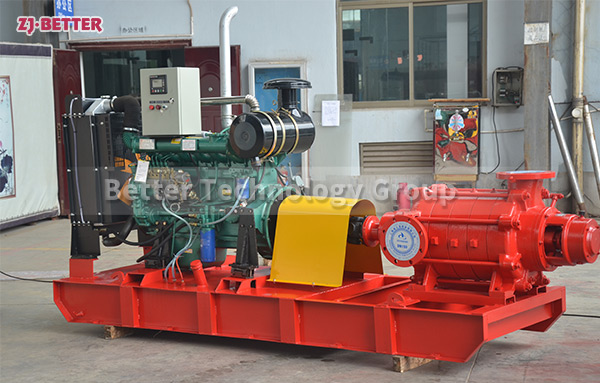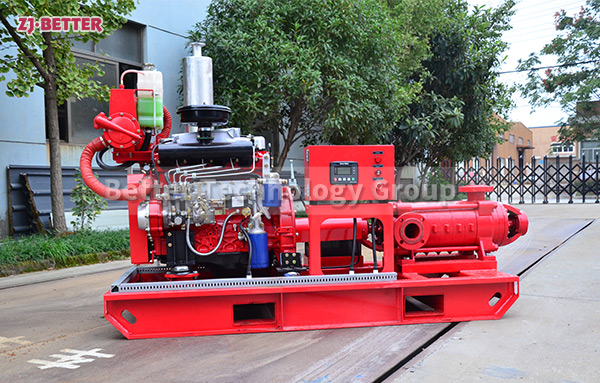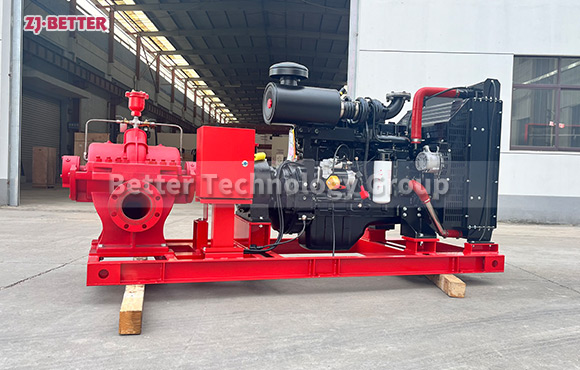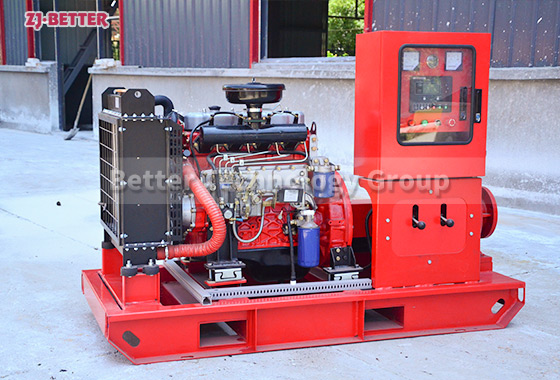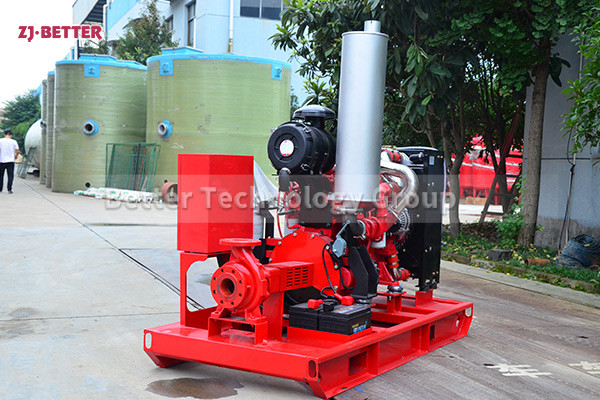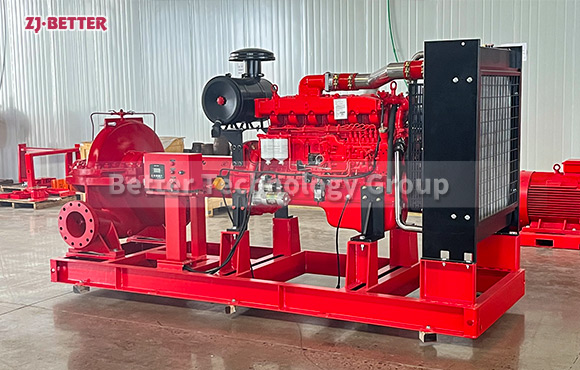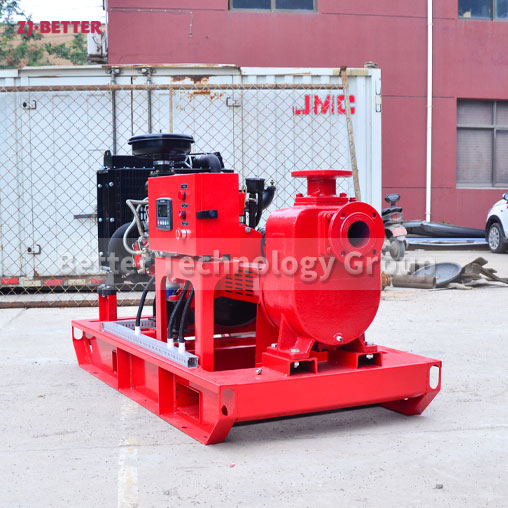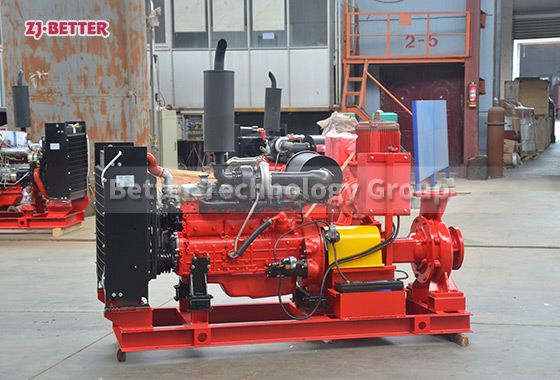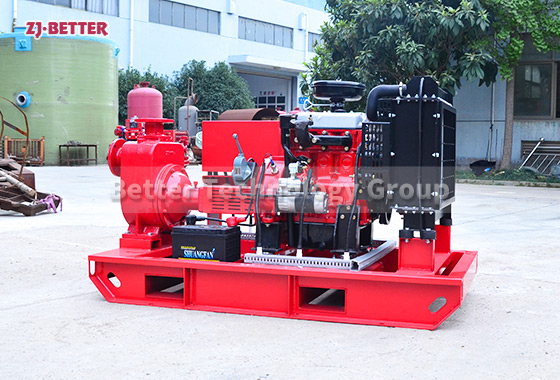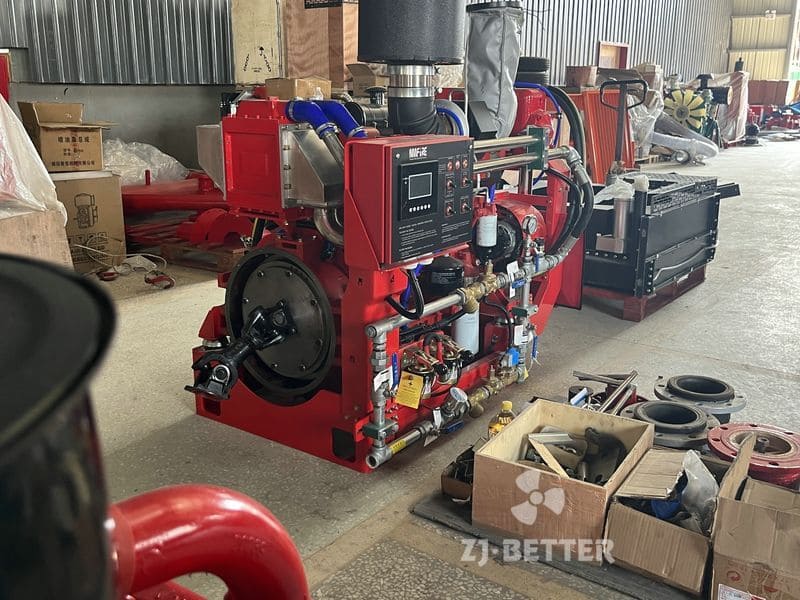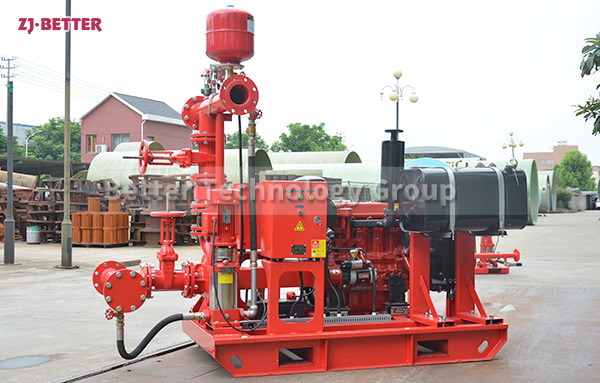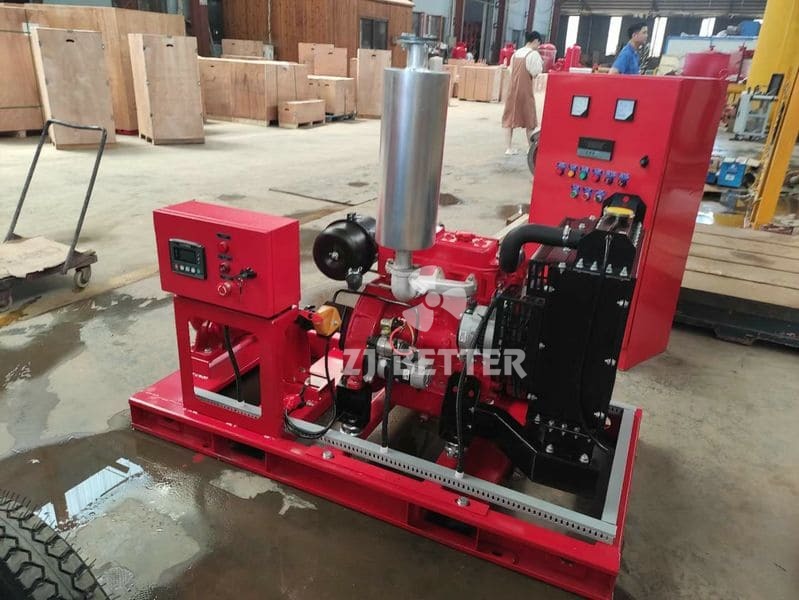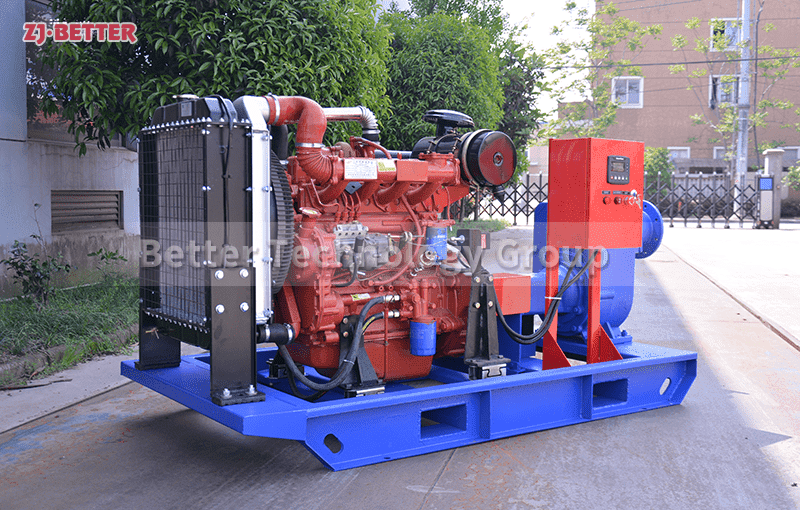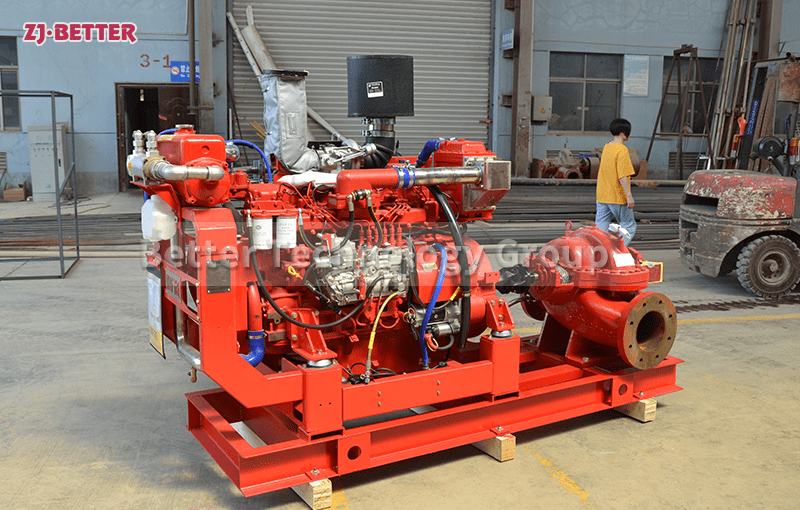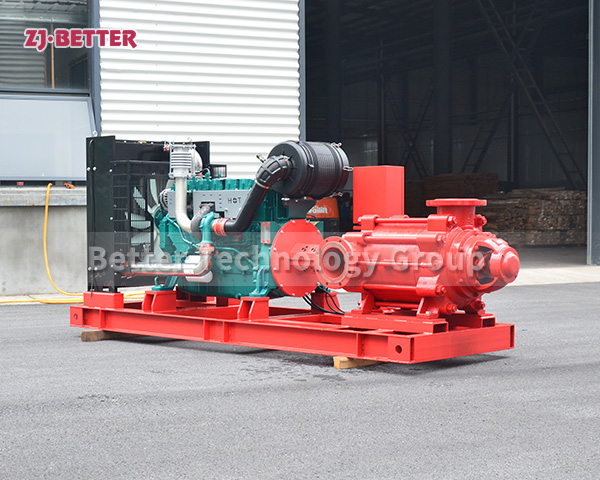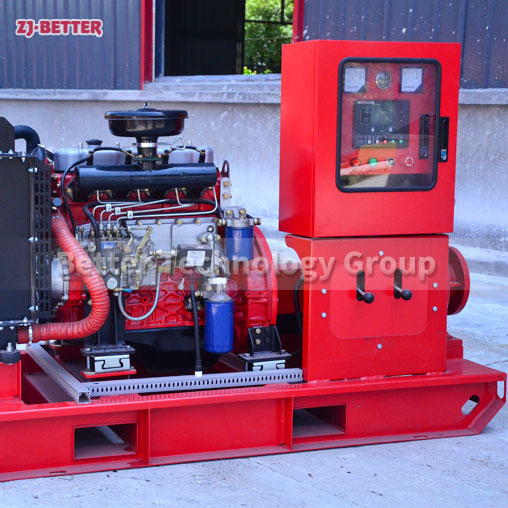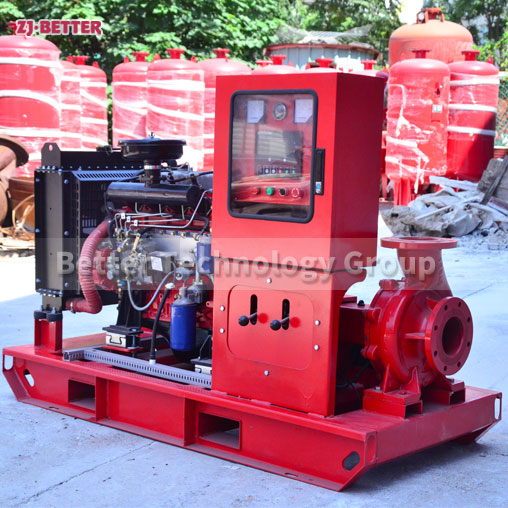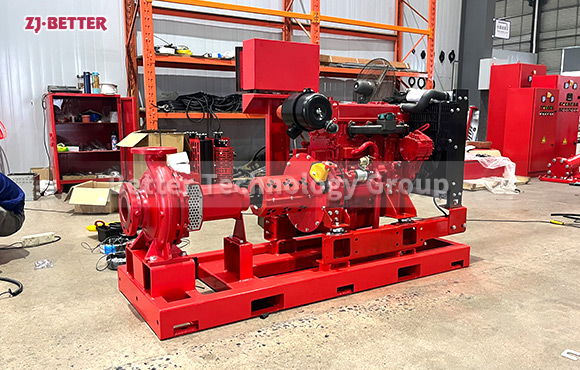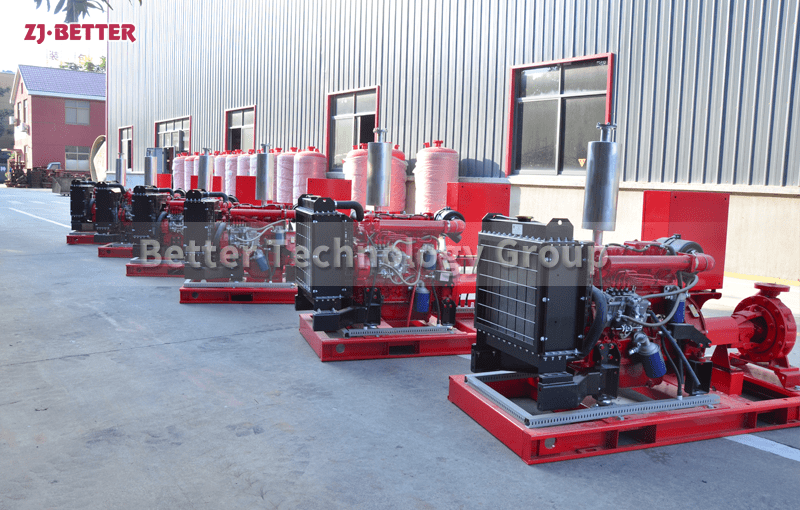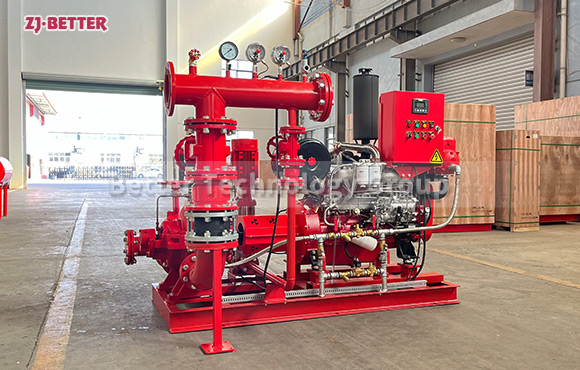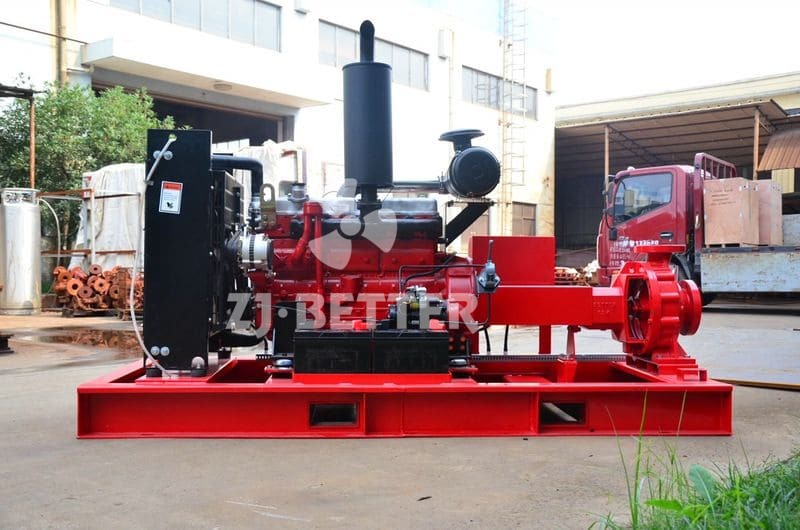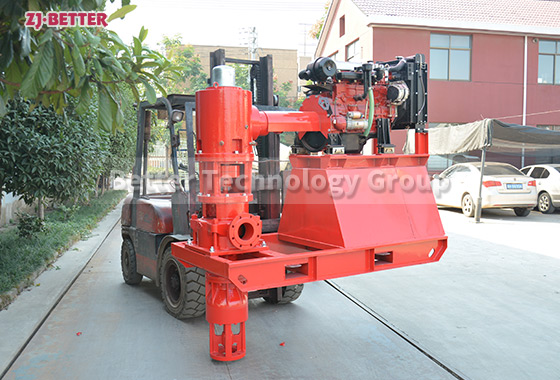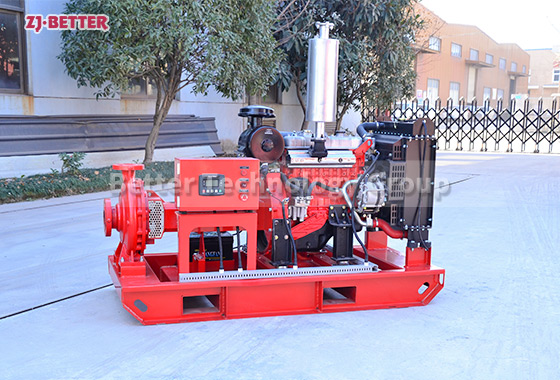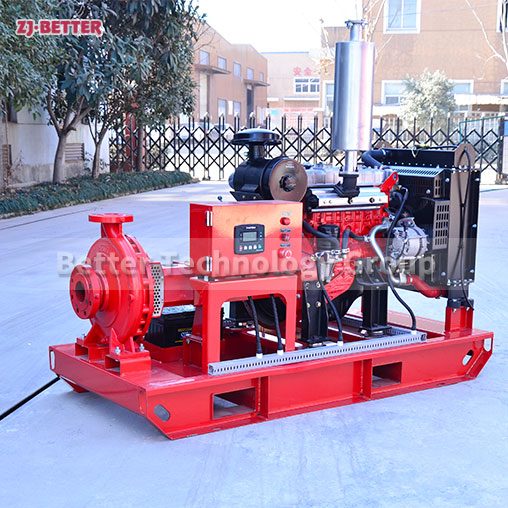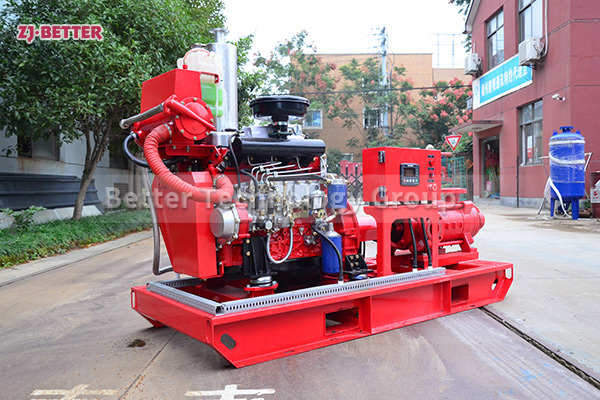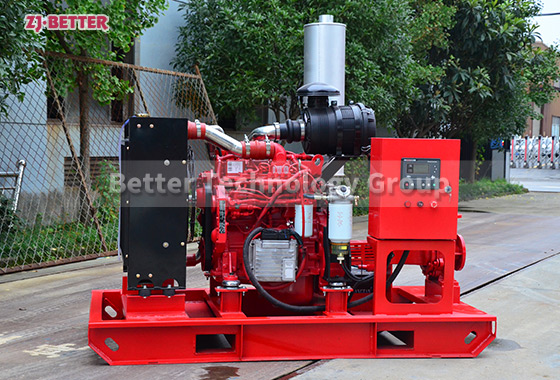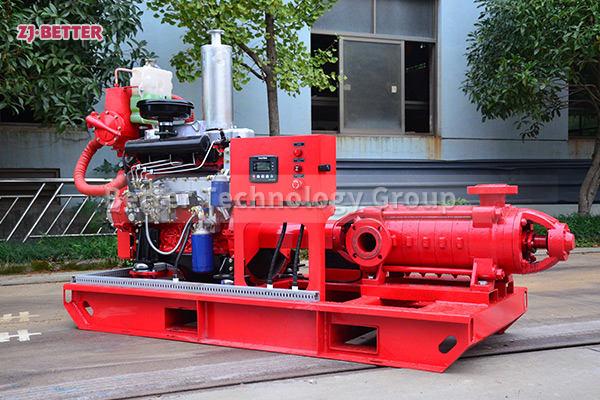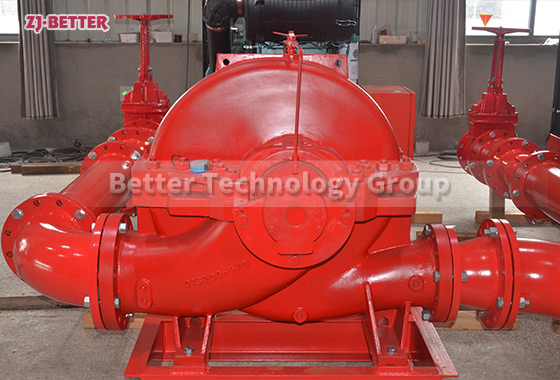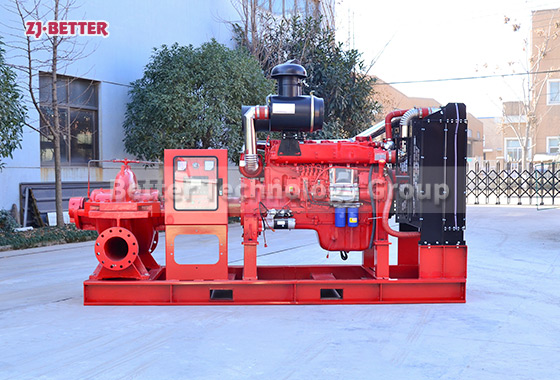XBC-XA Diesel Fire Pump
The XA Diesel Fire Pump is powered by a diesel engine and is available in a wide range of flows and pressures at 50 and 60 cycle speeds. XA series single-stage centrifugal pump is the first single-stage single-suction centrifugal pump product launched by Better (China) Technology Group Co., Ltd. This product integrates the advantages of similar products at home and abroad, and adopts excellent hydraulic model design. Therefore, its excellent hydraulic performance and structural characteristics ensure that users can effectively reduce the operating cost of the pump in various applications.
XA single-stage single-suction centrifugal pump conforms to international standards: ISO9908, Technical Specification for Centrifugal Pumps,Class III (Technical Specification for Centrifugal Pumps, Class III), mainly based on German DIN standard.
Structural Design for Easy Installation
The rear open cover design can replace the rotor components without dismantling the pipeline.
Replaceable seal ring. The wear of the impeller ring can be achieved only by replacing the sealing ring,so as to restore the best operating condition of the pump and achieve low-cost operation.

